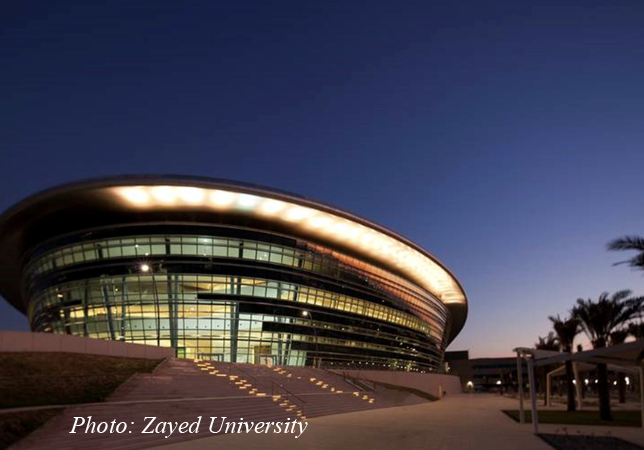
Zayed University in Abu Dhabi has launched an Arabic education hub to help the Emirates’ drive to encourage wider use of the language. The Zai Centre will explore how Arabic is taught across the globe in order to provide learners with recognized standards of education.
The facility aims to be the world’s first Arabic language education accrediting body by 2026, the government media office said on Twitter, adding that the center was part of “Abu Dhabi’s vision to preserve and develop the Arabic language.”
Noura Al Kaabi, the Emirates’ minister of culture and youth and chair of Zayed University’s board of trustees, said the Emirates had a duty to enhance the teaching of Arabic. “The Arabic language is inextricably linked with our heritage, culture, and homeland,” she said. “We all therefore have a duty to promote, preserve, and enhance the teaching of Arabic.”
According to Al Kaabi, a recent report by the Ministry of Culture and Youth highlighted an “absence of a clear vision for teaching Arabic as a world language.”
“Our ambition is to establish the Zai Centre as a leader in this space and become the first accrediting body for Arabic language education in the world by 2026,” she said.
The Zai Centre will oversee the creation of the Children’s Arabic Corpus, in partnership with the Abu Dhabi Arabic Language Centre, which will identify the most frequently used words in Modern Standard Arabic.
It will also lead the development of a resource library, beginning with translations of the top 100 studies on Arabic teaching published in academic journals, most of which are currently only available in English.
Supporting Arabic has been a priority for leaders of the United Arab Emirates (UAE) in the context of the country’s multiculturalism. The UAE has embraced bilingualism in everyday life, with road signs in English and Arabic, and many government and legal services available in both languages.
In August, Sheikh Abdullah bin Zayed, minister of foreign affairs and international co-operation, called on schools and universities across the country to step up efforts to promote national identity and culture and the Arabic language.
In June, Sheikh Dr. Sultan bin Muhammad Al Qasimi, ruler of Sharjah, the third biggest city in the UAE, urged teachers to promote Arabic in schools.
Sheikh Dr. Sultan stressed the importance of teaching Arabic to pupils, focusing on the need to develop new teaching methods for the language and encouraging youngsters to learn it.
“The Arabic language is a stockpile of our history, our knowledge, and our culture. The Arabic language is what holds firm our belief in our religion. The Arabic language is what unites us from the farthest corners of the Earth—from the far East to the far West, we are united under one language,” he said in an address to teaching staff at the Sharjah Education Academy.
In 2020, Abu Dhabi set out a five-year plan to encourage greater use of Arabic. It included using Arabic content, developing digital platforms in the language, and encouraging research to promote it at all levels.







